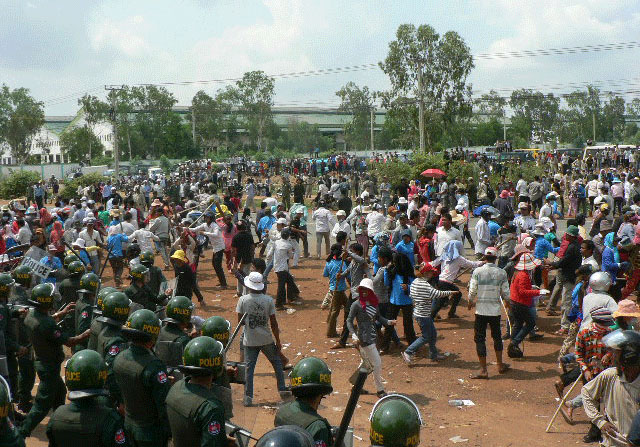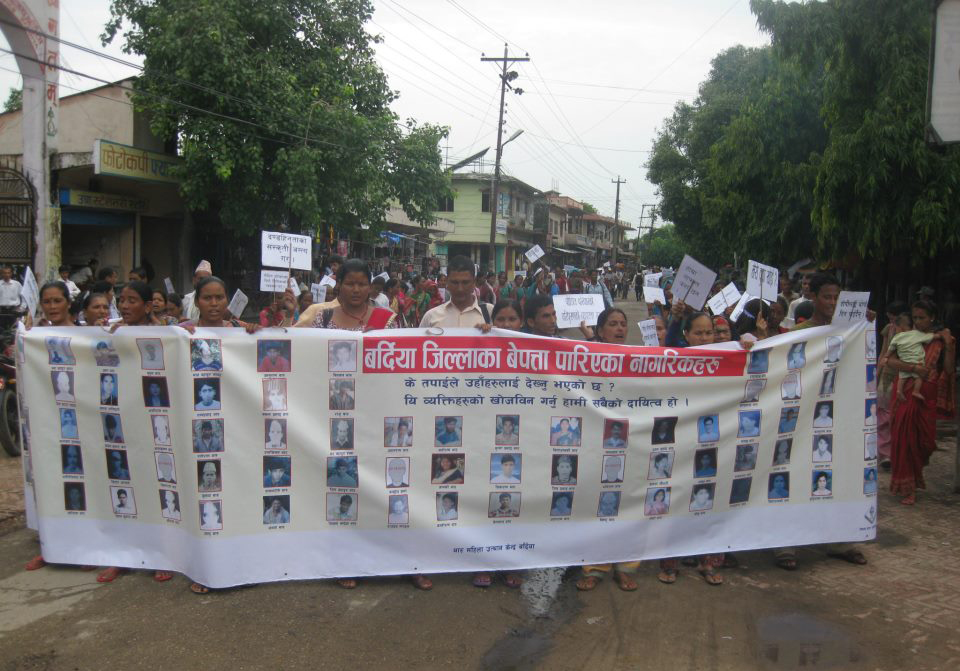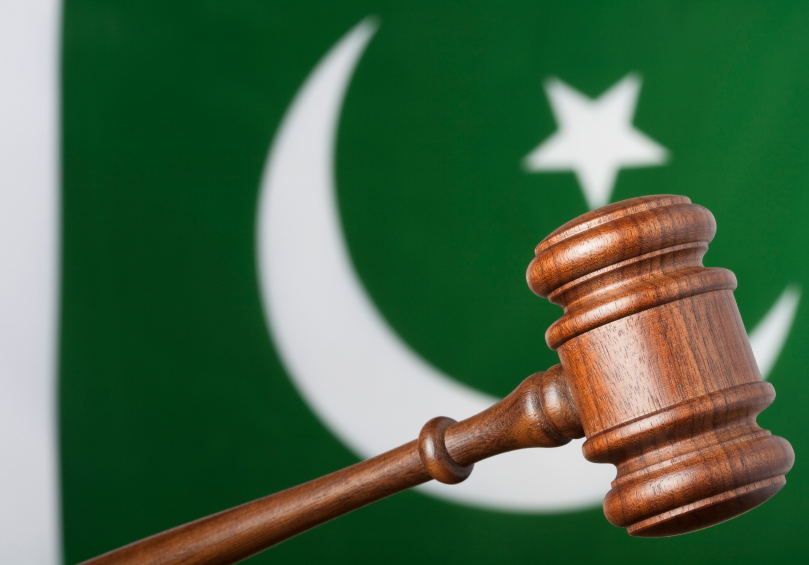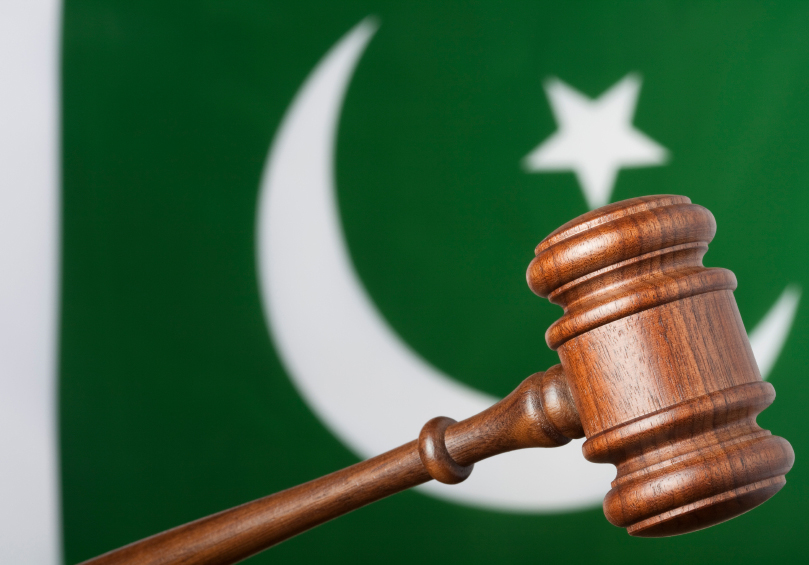
Dec 10, 2014
An opinion piece by Reema Omer, ICJ Legal adviser in Pakistan.
The 64th world Human Rights Day held 10 December marked thirty months since Pakistan passed the National Commission for Human Rights Act, providing for the establishment of a National Commission for Human Rights (NCHR) for the promotion and protection of human rights in the country.
The Government’s failure to constitute the legally mandated Commission is another indictment of its commitment to human rights.
A NCHR by itself will not fix all of Pakistan’s serious human rights problems, but if constituted properly, the NCHR can be an important step forward.
In South Asia, Pakistan is the only country that has not established a National Human Rights Institution (NHRI) -India constituted a National Human Rights Commission in 1993, Sri Lanka in 1996, Nepal in 2000, and Bangladesh in 2008.
This deficiency was manifest when Pakistan accepted multiple recommendations during the 2012 review of its human rights record by the Untied Nations (the Universal Periodic Review) that called on Pakistan to speedily operationalize the National Commission for Human Rights.
It is critical – for at least three reasons – that Pakistan swiftly establishes a NCHR compliant with the UN Principles relating to the Status of National Institutions (Paris Principles), which provide the minimum standards required by national human rights institutions to be considered credible and effective.
First, a major function of a national human rights commission is to ensure access to remedies to victims of human rights violations and accountability for perpetrators.
Pakistan has long faced a crisis of impunity, with perpetrators of the gravest human rights violations, especially those belonging to state security agencies, escaping accountability with ease.
Questionable political will, lack of legal aid and a judicial system fraught with delays are some of the reasons why victims have little chance at getting justice.
An independent and effective NCHR, with powers of investigation and quasi-judicial authority, can provide an additional avenue for redress.
In India, for example, the NCHR played an integral role in ensuring compensation for victims of the anti-Muslim Gujarat riots in 2002, and fake “encounter killings” in Manipur in 2014.
Second, another important function of NHRIs is to advise on existing laws, policies and proposed legislation, as well as their implementation, particularly on their compliance with international human rights laws and standards.
In the last couple of years alone, Pakistan has passed multiple laws that violate its international human rights obligations.
The Fair Trial Act, 2013 and the Protection of Pakistan Act, 2014, are just two examples.
In addition, Pakistani is currently debating on a bill that aims to incorporate the Convention against Torture and Other Cruel, Inhuman or Degrading Treatment or Punishment (CAT), which Pakistan ratified in 2010, into domestic law.
The proposed bill has many deficiencies, which could benefit from a detailed analysis by a competent body familiar with international human rights law.
And finally, NHRIs have the responsibility to promote human rights, including by organizing public awareness and education programs as well as trainings public officials.
Disturbingly, human rights continue to be thought of as “Western propaganda” in Pakistan, including by some public officials.
NGOs working in the human rights field as often demonized as working on a “foreign agenda” for personal enrichment.
In such a climate, it is essential that a national administrative body counters the negative propaganda, and makes the public and public officials more aware of their rights as well as their human rights obligations.
However, for a NCHR to be effective in all these areas, it must comply with the Paris Principles, which require independence and pluralism, and the capacity to participate in essential human rights work, including engaging with the Government on “any situation of violation of human rights which it decides to take up”.
The NCHR Act, 2012, significantly limits the Commission’s mandate where the armed forces are accused of committing human rights violations.
In such cases, the Commission is only authorized to seek a report from the Government, and make recommendations if it sees fit.
The law further emphasizes that the functions of the Commission “do not include inquiring into the act or practices of the intelligence agencies”.
As the NCHR law stands, it seems questionable that the Commission will get accreditation by the International Coordinating Committee of NHRIs, which is a requirement for an NHRI to be recognized internationally.
Also, unless its mandate is broadened to include intelligence and security agencies –accused of the gravest violations –it risks being toothless, or even worse, a cover for government inaction.
It is therefore paramount that the Pakistani Government meet the commitments made to the people of Pakistan and the international community by swiftly establishing the NCHR after amending the NCHR Act, 2012, to give the Commission mandate to investigate human rights violations committed by the military, including the intelligence agencies.
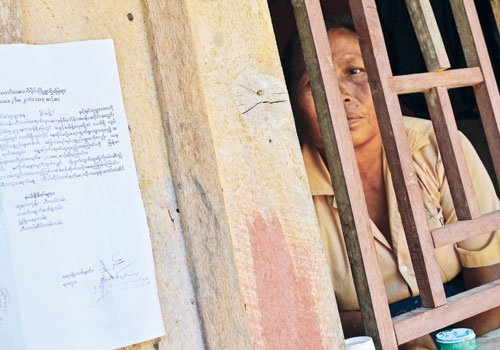
Oct 6, 2014
An opinion piece by Vani Sathisan, ICJ International Legal Adviser in Myanmar
The village elder from Mutu, a small village near Dawei, in southern Myanmar, held out the 30 complaint letters residents had sent to Tanintharyi Region Chief Minister U Myat Ko.
The letters sought to highlight alleged human rights violations related to the development of the Dawei Special Economic Zone (SEZ) and requested that adequate compensation be paid to those affected.
In Mutu and neighbouring villages, farmers and fishermen lamented the displacement of communities, loss of livelihoods and culture, and forced relocations due to the development of the Dawei SEZ and related infrastructure.
Some told us they were being charged with trespassing on government land because they had refused to leave their homes after their land had been confiscated.
While the Dawei SEZ has been stalled for some time, Thai Prime Minister Prayut Chan-o-cha will visit Myanmar – his first official overseas trip – and is expected to hold talks aimed at reviving the project.
But the complaints emanating from Dawei are not isolated incidents.
Amid the euphoria of the investment gold rush, Myanmar faces an epidemic of land disputes exacerbated by the development of SEZs.
With reforms underway, the government has sought to shed its pariah image and promote SEZs that combine industrial estates and deep-sea ports in order to attract foreign investment, boost the job market and shift its economic dependence away from the dominant agricultural sector.
But without proper environmental and land laws, as well as an effective judiciary to enforce these laws and provide appropriate judicial remedies, these development projects risk being counterproductive for sustainable development and the protection of human rights in Myanmar.
For Myanmar to embark on a path of sustainable development that advances, rather than undermines, the rights of its people, it must create a legal framework consisting of primary laws and secondary regulations.
Two components are crucial in such a framework. First, it must ensure there are robust procedures to ensure justice and effective remedies for those harmed by development projects – including investors – by strengthening the ability of courts and administrative bodies to hear such cases.
Second, it must prevent violations by creating an obligation to undertake environmental and social impact assessments, particularly human rights impact assessments.
There are some indications that the judiciary is beginning to act more independently.
The use of litigation against the government for human rights violations – unheard of in Myanmar under military rule – seems to be gaining some traction.
The ICJ met villagers suing state-owned Mining Enterprise 2 – which operates the Heinda mining project, one of the biggest in Myanmar, with a Thai firm – for damage to their homes and crops.
The lawsuit has been accepted for trial by the Dawei District Court.
This is believed to be the first time that a lower-level court in Myanmar has accepted a case of this nature against a government entity.
Up in northern Shan State, a coffee plantation company recently announced that it plans to take legal action against the Ministry of Agriculture and Irrigation, which has allegedly failed to take adequate steps to resolve a land dispute with local farmers.
These cases are a test of the effectiveness and independence of Myanmar’s judiciary, and its capacity to fairly administer justice, as it seeks to emerge from years of repression and submission to military rule. It remains unclear whether they will be effective.
“Villagers are now turning to the courts to seek justice but we may be fighting a losing battle,” U Thant Zin, a senior coordinator of the Dawei Development Association, told us during a visit to the site of the proposed SEZ.
But such problems can be prevented in the first place if robust environmental and social impact assessments are contemplated in the investment process.
Impact assessments are important before a project is approved in order to identify potential impacts, assess alternatives, and avoid or mitigate serious human rights and environmental violations.
Typically, they would lead to the formulation of environmental and social management plans to be applied throughout the duration of a project to identify specific risks and deal with them effectively.
In Myanmar, there is still ambiguity about the roles of environmental impact assessments and environmental management plans.
The Environmental Conservation Law enacted in 2012 requires significant refinements.
Even though impact assessments are required for all major development projects under the new Foreign Investment Law, the precise environmental and social standards expected for investors have yet to be articulated.
The procedures for impact assessments remain in draft form.
Domestic environmental legislation must be further improved and finalized to protect the environment and human rights.
Meaningful steps to mitigate risks relating to corruption and unjust land acquisitions are urgently needed to protect Myanmar’s vulnerable communities and ensure environmentally benign outcomes from investment deals.
These include environmental and human rights impact assessments to address forced evictions and resettlement, and conducting public consultations with potentially affected communities.
Investment permits should be approved only after such strategic assessments are undertaken and the results are publicly and transparently disclosed.
Regional and global stakeholders must also support this rights-compliant investment culture, as part of their international duty to promote the realization of human rights through international cooperation.
In the absence of a robust system of impact assessments, Myanmar civil society has taken some encouraging steps to enforce the rights of people affected by development projects.
Environmental groups have challenged the Letpadaung copper mine in Monywa for the failure of developers to undertake an environmental impact assessment.
Displaced villagers from Thilawa recently travelled to Tokyo to demand adequate compensation and due process from the Japanese International Cooperation Agency, which is supporting the development of the SEZ.
Dawei residents have also met Niran Pitakwatchara, the managing director of the National Human Rights Commission of Thailand, and a public hearing is expected later this month in Bangkok.
The approval of investments without requisite legal safeguards and enforcement mechanisms clearly has undesirable effects for the country.
On the other hand, well-regulated investment may be harnessed to help realize the rights of the people of Myanmar.
The Myanmar government must do more to fulfill its responsibility to protect human rights and the environment instead of derogating that duty to investors.
Photo credit: Aung Htay Hlaing/The Myanmar Times



